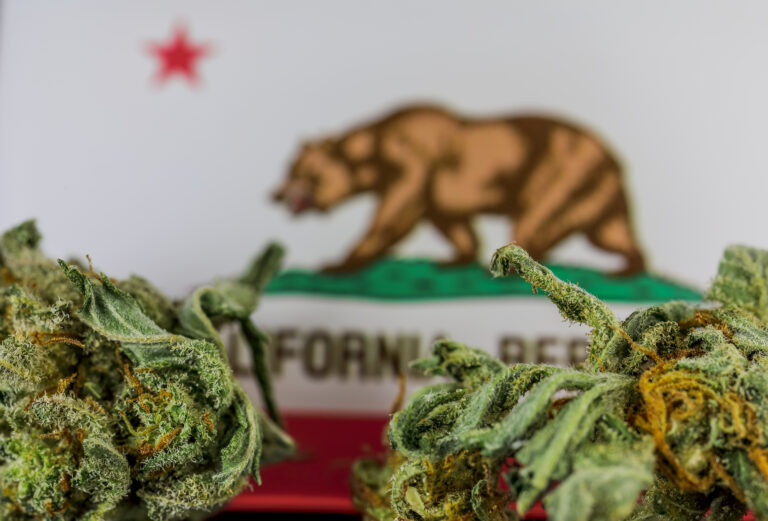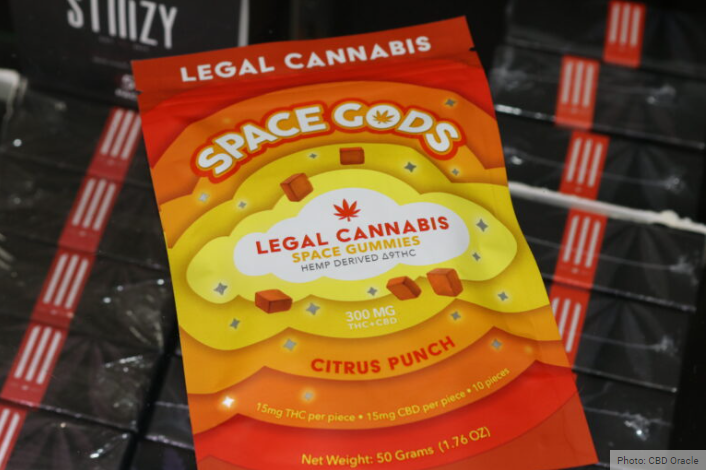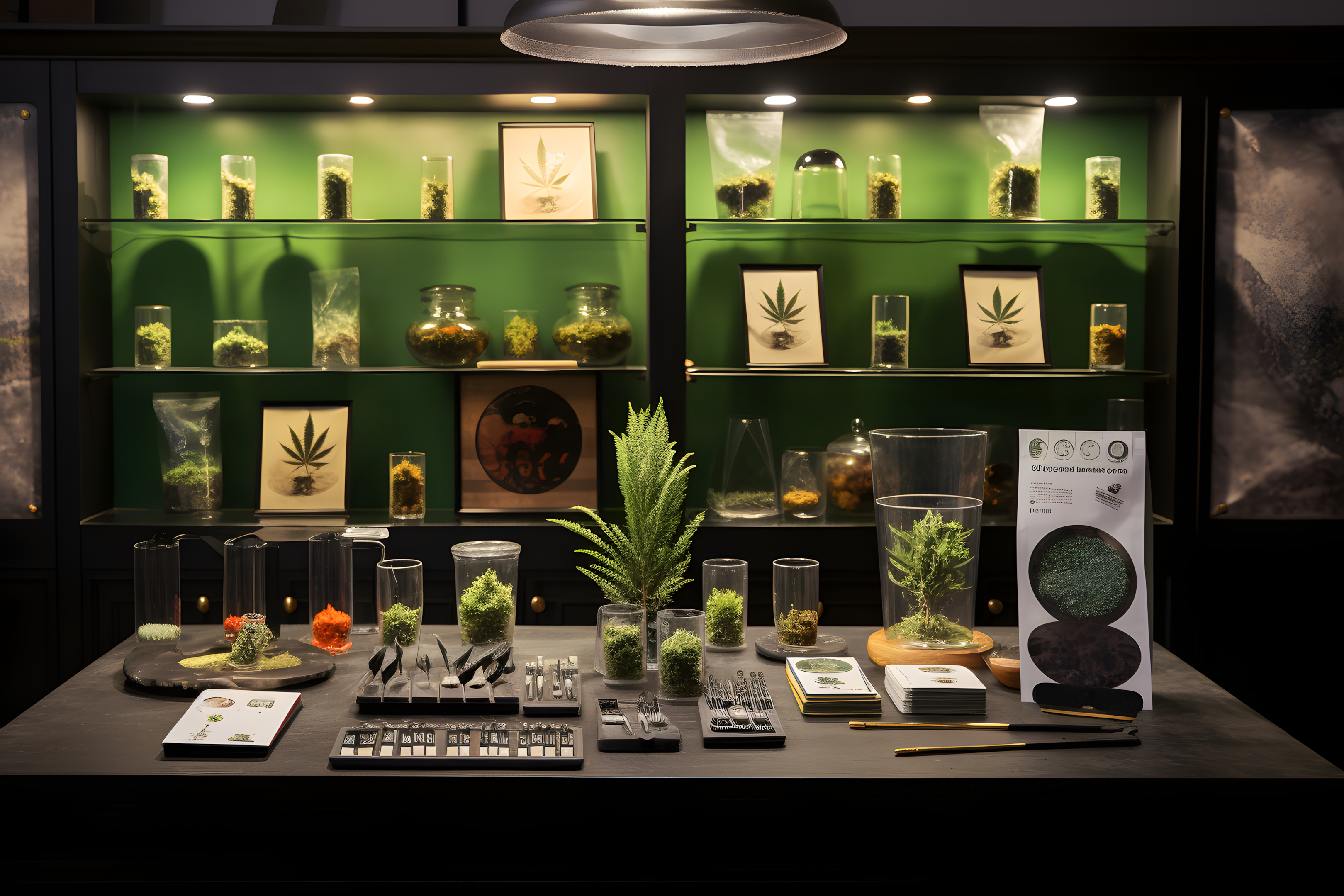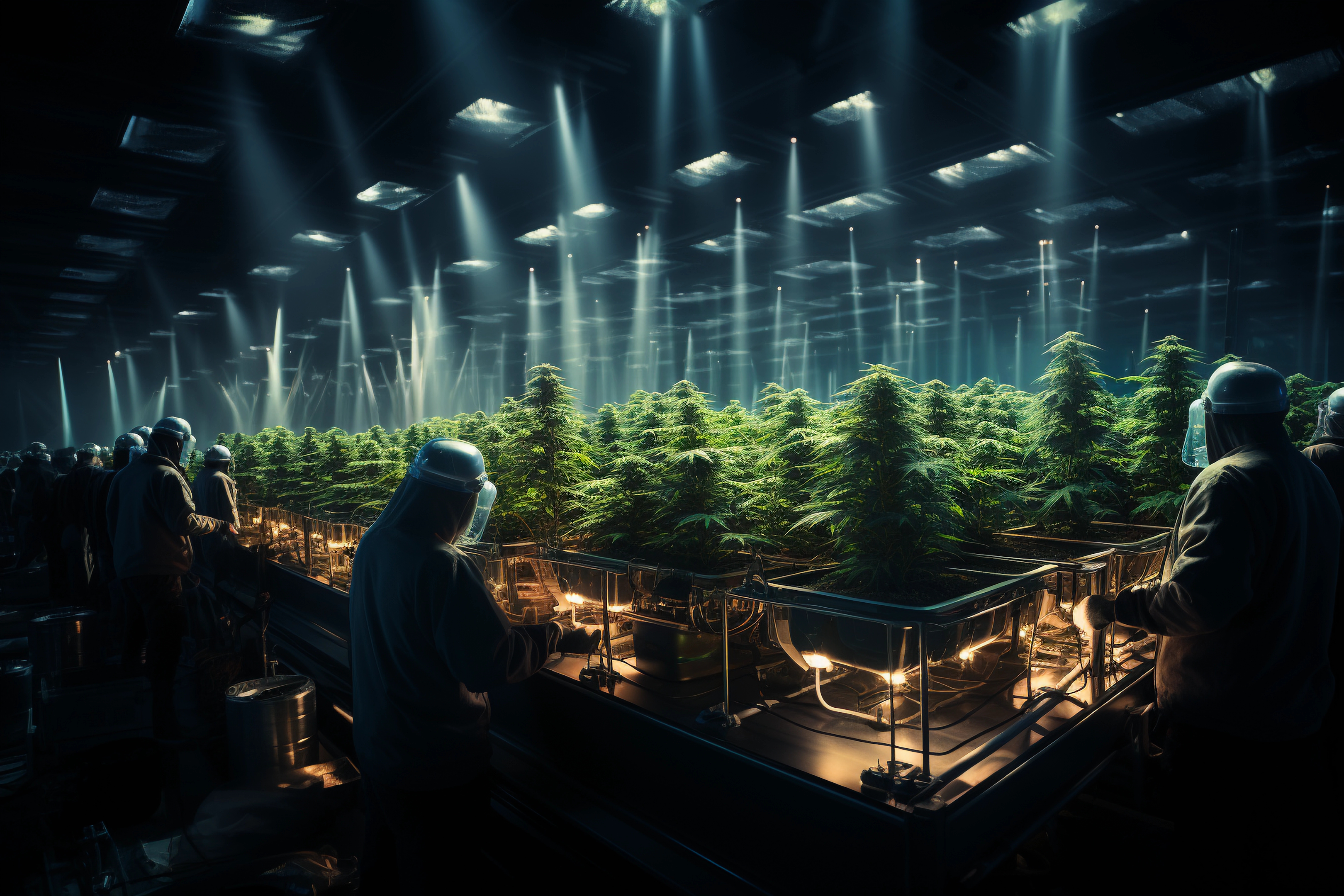
California, famously known for being the first state that legalized marijuana for recreational marijuana use, is now suing the hemp industry. California dispensaries are suing a handful of hemp-based companies for multiple grievances.
One might think, “Well that seems silly.”
Because it is.
A group of marijuana dispensaries, manufacturers, and distributors in California have filed a lawsuit against a list of cannabis companies that operate in the cannabis industry, but specialize in the production and sale of hemp products.
In accordance with the 2018 Farm Bill, the production and sale of any/all hemp products was made legal, so long as the Delta 9 THC content of such products did not exceed 0.3%. Although some states bypass federal legalization to still ban hemp products, this is not the case in California.
There seem to be 2 main areas of concern that the lawsuit is based on:
- False advertising. The complaint was submitted with exhibits of one company’s products that had a label on certain cannabis products that read, “Legal Cannabis.” This is where the definition of terms comes into play, but we’ll get into that in a bit.
- Unfair competition. They claim that cannabis businesses making hemp products have “…brazenly flooded the California marketplace with these high intoxicating and chemically synthesized [non-compliant hemp products] with the intention…” The bummer is that companies and good actors don’t simply make up random chemicals. Cannabis plants contain over 100 different cannabinoids, and it’s hard to say how many other cannabinoids still have not been discovered. Most companies draw from naturally occurring cannabinoids to influence the types of products we create and make available to the human body.
Now, there might be some ground to stand on with small pieces of language within California’s legalization legislation. But to say that “their case seems pretty solid,” as proposed by some articles, might be a step too far, too early.
It was probably inevitable that there would be some discord within the legal cannabis industry, as there are clearly some gray areas.
That’s part of the issue with people making laws about subjects they’re not experts in. It’s now led to the marijuana industry getting mad when hemp cannabis companies start making products that people desire and are benefitting from.
Hopefully all gets straightened out and companies are able to do business in their respective fields.
But until then, let’s get into it.
Definition of Terms Matter in the Cannabis Industry

Unfortunately, it seems part of the lawsuit is due to a definition of terms that doesn’t appear to be outlined in legislation. The above picture shows one of the packages that helped raise such concerns and gave what the plaintiffs consider fuel for their case.
Within California’s Assembly Bill No. 45, they reference the definition of “Industrial hemp” or “hemp” as, “…an agricultural product, whether growing or not, that is limited to types of the plant Cannabis sativa L…
Sound familiar?
…”and any part of that plant, including the seeds of the plant and all derivatives, extracts, the resin extracted from any part of the plant, cannabinoids, isomers, acids, salts, and salts of isomers, with a delta-9 tetrahydrocannabinol concentration of no more than 0.3 percent on a dry weight basis.”
Delta 9 tetrahydrocannabinol is the psychoactive component of the cannabis plant that many marijuana users seek. Due to its psychoactive effects, it is on the controlled substances list on the federal level. However, under the 2018 Farm Bill, it is allowed in hemp products as long as the Delta 9 THC content does not surpass 0.3%.
Cannabis vs. Hemp vs. Marijuana – Terminology in the Legal Cannabis Industry
This is where there seems to be a lot of confusion, particularly in the first half of the lawsuit.
Whether it’s those who use marijuana products or hemp products, people hear “cannabis” and automatically think marijuana. It’s the connection people have made for years. However, we must define and specify.
Cannabis is an umbrella term that covers both hemp and marijuana. Hemp and marijuana plants are from the same plant family and are pretty much the same thing. The main distinction between hemp and marijuana is the arbitrary allowable concentration percentage of Delta 9 THC.
Saying that marijuana is cannabis is like saying a Catholic is Christian. Well, duh. But not all cannabis is marijuana. What we have is a classic case of, “All Catholics are Christians, but not all Christians are Catholics” scenario.
All marijuana is cannabis, but not all cannabis is marijuana.
So, when people refer to cannabis plants or the cannabis industry, a little more specificity is required. Are they referring to hemp or marijuana? There is a distinction, so let’s clarify it.
Therefore, the “legal cannabis industry” would naturally also contain hemp products. Packaging by hemp companies with “legal cannabis” on their labels technically is not incorrect. If they said, “legal marijuana,” then that could pose an issue.
Overall, hemp companies and marijuana companies are both cannabis companies. Both are able to offer legal cannabis sales, but one derives products from the hemp plant while the other uses the marijuana plant.
Now the question becomes how a judge (hopefully one with cannabis industry knowledge) will interpret the definition of terms. At least for the first half of this lawsuit, that is what will help all cannabis companies moving forward. The interpretation could be a make-or-break decision for this lawsuit.
Unfair Competition by the Hemp Industry? Maybe, Maybe Not

Cannabis legalization at the federal level opened a lot of doors for a lot of people on all levels. From cannabis consumers to cannabis cultivation and manufacturers, a lot of good has and will continue to come from the effort and success to legalize cannabis in all facets and states.
The accusation of unfair competition in the cannabis industry hinges on a critical question:
Are hemp-based cannabis businesses genuinely disrupting the market to the detriment of traditional marijuana companies?
This is a complex issue, especially considering the nuances of federal legalization and the distinct legal thresholds for THC content in hemp and marijuana products.
Cannabis businesses like those named in the lawsuit have navigated these waters carefully. There are good actors named in the lawsuit that have consistently adhered to the legal limit of 0.3% Delta 9 THC in their products, a standard set by the 2018 Farm Bill.
This compliance highlights a significant point of contention in the lawsuit – whether the presence of THC, albeit within legal limits, constitutes a breach of fair competition practices.
Bridging the Gap: Understanding the Spectrum of Cannabis Products

It’s essential to understand the broad spectrum of cannabis products available in the market. This understanding helps in appreciating the nuances and complexities of the cannabis industry, which encompasses a wide range of products with varying purposes and legal standings.
Medical Marijuana: A Distinct Category
Medical marijuana occupies a unique space in the cannabis industry. Unlike recreational use, medical cannabis is often prescribed for specific health conditions, making it a critical component of healthcare for many.
The distinction between medical marijuana and recreational cannabis is crucial, especially when discussing the legality and ethical aspects of cannabis sales and marketing.
In California, where medical use of cannabis has a long history, the lines between medical marijuana and recreational use have often been blurred. This blurring raises questions about the intent and application of products from cannabis businesses like those operating under the hemp cannabis policy, which operates within the legal framework but is now caught in the crosshairs of a lawsuit that challenges the very definitions and boundaries of the cannabis market.
The Intersection of Medical and Recreational Cannabis

The intersection of medical marijuana and recreational marijuana presents another layer of complexity for the cannabis industry.
While medical cannabis is often subject to stricter regulations and controls, recreational cannabis offers more freedom in product development and marketing. Cannabis businesses operating in both spheres need to navigate these differences carefully, ensuring compliance while meeting diverse consumer needs.
This intersection also raises questions about the role of cannabis products in healthcare and wellness. As research into the health effects of cannabis continues to grow, cannabis companies have the opportunity to contribute to this body of knowledge, potentially leading to new therapeutic applications for medical marijuana and other cannabis-derived products.
The Role of THC in Cannabis Products
A central issue in the lawsuit is the role of THC in cannabis products. THC, the psychoactive component of the cannabis plant, is what differentiates hemp from marijuana.
While marijuana products typically have higher THC levels, hemp products are defined by their low THC content. This distinction is crucial in understanding the allegations of unfair competition.
Cannabis products from hemp are designed to meet the legal threshold of THC content. This careful balance allows them to offer products that cater to consumers’ needs without crossing the legal boundaries set by federal legalization.
It’s a tightrope walk that requires meticulous attention to detail and a deep understanding of both the cannabis plant and the laws that govern its use.
The role of THC in cannabis products is a pivotal factor in understanding the dynamics of the cannabis industry. THC’s psychoactive properties are what primarily differentiate medical marijuana from other forms of medical cannabis and recreational products.
This distinction is crucial in the context of the lawsuit, as it questions whether hemp-derived products with low THC levels can be considered equivalent to traditional marijuana products.
Cannabis Companies: Navigating a Complex Landscape

Cannabis companies are at the forefront of a rapidly evolving industry. With changes in public perception, legislation, and market dynamics, these companies face the challenge of adapting to an environment where the rules can shift unexpectedly.
This adaptability is evident in how hemp companies have responded to the evolving landscape of cannabis policy and regulation.
The lawsuit in California underscores the complexities that cannabis companies face. It’s not just about complying with the law; it’s also about understanding and navigating the nuances of market perception, competition, and the evolving legal landscape.
For hemp companies, this means ensuring that their products, such as those derived from hemp seeds or hash oil, meet legal standards while also addressing consumer needs and preferences.
Navigating the legal landscape is a critical task for cannabis businesses. This involves not only compliance with current laws but also active participation in shaping future cannabis policy. Hemp companies can play a role in advocating for fair and sensible regulations that reflect the realities of the cannabis market and protect consumer interests.
As part of this effort, cannabis companies must also engage in educating policymakers, stakeholders, and the public about the nuances of the cannabis plant and its derivatives. By providing informed perspectives and data, they can help dispel myths and misconceptions about cannabis use, contributing to more informed and effective policy decisions.
The Impact on Cannabis Sales and Market Trends

The allegations of unfair competition also raise questions about the impact on cannabis sales and overall market trends. The cannabis market is highly competitive, with numerous players vying for consumer attention. The introduction of hemp-based products that toe the line of legal THC limits adds another layer of complexity to this competition.
For hemp companies, maintaining a competitive edge means innovating within the confines of the law. This innovation is not just about product development but also about understanding consumer trends, cannabis use patterns, and market demands.
The ability to adapt to these changing dynamics is what will determine the long-term success of cannabis businesses in an increasingly crowded marketplace.
The Role of Technology and Innovation in Cannabis Production
Technology and innovation are driving forces in the cannabis industry, particularly in the areas of cultivation, extraction, and product formulation. Advanced techniques allow for more precise control over the composition of cannabis products, enabling cannabis businesses to create consistent, high-quality products that meet legal requirements and consumer expectations.
For example, the use of sophisticated extraction methods can isolate specific cannabinoids and terpenes, allowing for the creation of tailored products that cater to specific needs or preferences. This level of precision is essential in an industry where the difference between legal and illegal products can come down to minute differences in chemical composition.
The Hemp Industry Lawsuit: A Catalyst for Industry-Wide Reflection

The lawsuit against the hemp industry in California serves as a catalyst for reflection and potential recalibration within the cannabis industry. This legal challenge underscores the need for clarity in the industry’s regulatory framework, particularly regarding the distinctions between hemp and marijuana products.
For cannabis businesses, this lawsuit is not just a legal hurdle but an opportunity to reassess and reinforce their practices and policies.
The Importance of Clear Labeling and Marketing
One of the critical issues at the heart of the lawsuit is the labeling and marketing of cannabis products. The accusation of false advertising against hemp companies for using terms like “legal cannabis” highlights the need for clear and accurate product descriptions.
Cannabis businesses must ensure that their marketing strategies are not only compliant with legal standards but also transparent and informative for consumers.
But this again goes back to defining terms. Cannabis can actually refer to hemp products, as they are still categorized as being within the cannabis family. As law is half the interpretation of it, it will be interesting to see how a judge rules if/when this notion is brought forward.
For hemp companies that are good actors, which have consistently adhered to legal THC limits, this lawsuit emphasizes the importance of clear communication about product contents and effects. Ensuring that consumers are well-informed about the nature of the products they are purchasing is crucial for maintaining trust and credibility in the cannabis market.
The Future of Federal Legalization and Its Impact
The ongoing lawsuit also brings into focus the broader topic of federal legalization. As states like California navigate their cannabis regulations, the question of how and when federal legalization will occur remains pivotal. Such a development could significantly alter the legal landscape for cannabis businesses, potentially harmonizing the patchwork of state laws and regulations.
For the hemp industry, federal legalization of marijuana could mean more standardized regulations and potentially less ambiguity in how hemp-derived products are treated. This could lead to a more level playing field in the cannabis industry and open up new opportunities for innovation and growth.
Navigating Competitive Dynamics in the Cannabis Industry
The lawsuit also highlights the competitive dynamics within the cannabis industry. As the lines between hemp and marijuana products become increasingly blurred, cannabis businesses must navigate a market where competition comes from multiple angles.
This situation demands strategic thinking and adaptability, as companies must differentiate their products while adhering to evolving legal standards.
For cannabis companies operating under a hemp license, staying competitive means not only focusing on compliance but also on quality, innovation, and consumer education. By understanding the nuances of the market and responding to consumer needs, these businesses can maintain their edge in an increasingly competitive landscape.
Rethinking the Approach: Collaboration Over Litigation

In the midst of the lawsuit against the hemp industry, it’s worth considering a different approach – what if, instead of legal battles, there was a collaboration between marijuana and hemp producers?
The current lawsuit, while rooted in legal concerns, overlooks a significant opportunity for innovation and growth within the cannabis industry. If companies led with the plant’s potential rather than their pocketbooks, the results could be groundbreaking.
Imagine the possibilities if the combined knowledge and skills of both sectors were harnessed.
This synergy could lead to the development of new cannabis products that leverage the unique properties of both hemp and marijuana. Such collaboration could drive rapid growth in the industry, leading to increased annual sales and a broader range of products for consumers.
Instead of viewing each other as competitors under the Controlled Substances Act, these businesses could become allies in pioneering a new era of cannabis use.
A Unified Front for Cannabis Legalization
The current lawsuit underscores the fragmented nature of the cannabis industry. However, a unified approach, especially in the context of legalizing marijuana, could be far more beneficial. By coming together, hemp and marijuana businesses can create a stronger voice in advocating for sensible cannabis legalization policies.
This united front could address common issues such as drug abuse, the stigma of cannabis use being a gateway drug, and the need for responsible human services in the industry.
Collaboration could also lead to more effective strategies for capital raises and investment in the industry. With a combined effort, the cannabis industry could attract more significant investments, driving rapid growth and innovation.
This approach could transform the industry from a collection of individual entities into a cohesive sector capable of monumental achievements.
Prioritizing the Plant and Its Potential

Focusing on the plant material and its vast potential could lead to a paradigm shift in how the cannabis industry operates. By prioritizing the plant over profit, cannabis businesses could explore new avenues for cannabis use, from medical applications to sustainable plant material uses.
This plant-first approach could also mitigate some of the adverse effects associated with the bad actors in the space, leading to healthier and more diverse products.
Envisioning a Future Driven by Collaboration and Ethics
In a future where hemp and marijuana producers work together, the emphasis would shift from competition to innovation and ethics. This collaborative environment could lead to the development of professional services within the industry that prioritize ethical practices, sustainable growth, and consumer well-being. The focus would be on creating value for all stakeholders – businesses, consumers, and communities alike.
Such a future would not only increase legal sales but also contribute positively to society.
It could dispel myths about cannabis use, reduce instances of drug abuse, and provide valuable contributions to human services. The potential for tens of thousands of new jobs and economic opportunities is immense, making the cannabis industry a significant player in the global market.
Embracing Change and Innovation in the Cannabis Industry

The cannabis industry is at a crossroads, with the lawsuit in California highlighting the need for clear definitions and fair competition practices. For cannabis businesses operating under a hemp license, the path forward involves a careful balance of compliance, innovation, and market adaptation.
As the industry continues to evolve, embracing change and innovation will be essential. The companies that succeed will be those that can navigate the complex interplay of legal requirements, consumer needs, and market trends, all while maintaining the integrity and quality of their cannabis products.
The lawsuit against the hemp industry, while highlighting important legal and regulatory issues, also presents an opportunity to rethink the industry’s trajectory. By choosing collaboration over litigation, the cannabis industry could unlock its full potential, leading to rapid growth, innovation, and a positive societal impact.
It’s time for the industry to unite and lead with the plant’s potential, paving the way for a future where cannabis legalization is synonymous with progress and prosperity.
The future of the cannabis industry is bright, but it requires a concerted effort from all stakeholders to ensure that growth is sustainable, responsible, and beneficial for all involved.